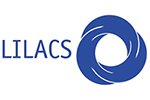ISSN Online: 2177-1235 | ISSN Print: 1983-5175
Showing of 1 until 2 from 2 result(s)
Search for : Daniel Gouvea Leal
Breast reconstruction with implants and synthetic mesh
ABSTRACT
Introduction: Mastectomy with immediate breast reconstruction
may prevent patients from experiencing a period of psychosocial
stress, negative body image, and sexual dissatisfaction. The
advent and implementation of novel materials such as implants,
expanders, and acellular dermal matrices have also contributed
to the success of breast reconstruction procedures. However,
the use of acellular dermal matrices in Brazil is restricted by
law and by their high cost. The objective of the present study
was to report the author's experience in breast reconstruction
with implants and synthetic mesh as an alternative to acellular
dermal matrices.
Method: This was a retrospective analysis of 12
consecutive patients (20 reconstructed breasts) who underwent
immediate or delayed breast reconstruction using the described
technique with implants and synthetic mesh between November
2015 and December 2016.
Results: Twelve patients (20 breasts)
were operated on using the technique described in this report.
The mean time of follow-up was 14 months. In this series, 15%
of patients had minor complications, including hematoma,
suture dehiscence, and rippling. The rate of complications was
similar to the rates reported in the literature, despite the limited
number of cases. The average degree of overall satisfaction with
the surgery was 75.2 points on a scale of 0-100, and the highest
score was given to breast appearance (85 points).
Conclusion:
Breast reconstruction with implants and synthetic mesh was
shown to be a technique with a low rate of complications,
high degree of patient satisfaction with the cosmetic result,
and decreased cost relative to acellular dermal matrices.
Keywords: Mammoplasty; Breast cancer; Breast implants; Simple mastectomy; Surgical meshes
RESUMO
Introdução: As mastectomias com reconstruções mamárias imediatas podem proteger a
paciente de um período de estresse psicossocial, imagem corporal negativa e
insatisfação sexual. O advento e utilização de novos materiais como os
implantes, expansores e matrizes dérmicas acelulares também contribuíram
para o sucesso das reconstruções mamárias. Porém, o uso das matrizes
dérmicas acelulares é restrito no Brasil pela legislação e seu alto custo. O
objetivo do estudo foi relatar a experiência do autor na reconstrução
mamária com implantes e tela sintética como uma alternativa às matrizes
dérmicas acelulares.
Método: Foi realizada uma análise retrospectiva de 12 pacientes consecutivas (20
mamas reconstruídas) que foram submetidas à reconstrução mamária imediata ou
tardia pela técnica descrita com implantes e tela sintética, entre novembro
de 2015 e dezembro de 2016.
Resultados: Doze pacientes (20 mamas) foram operadas pela técnica apresentada no estudo.
O tempo médio de follow-up foi de 14 meses. Nesta série,
15% apresentaram complicações menores como hematoma, deiscência de sutura e
rippling. O número de complicações, apesar do número
restrito de casos, é compatível com a literatura. O grau de satisfação
global com a cirurgia foi, em média, de 75,2 pontos em uma escala de 0-100,
sendo a nota mais alta atribuída à aparência das mamas (85 pontos).
Conclusão: A reconstrução mamária com implantes e tela sintética se mostrou uma técnica
com baixo índice de complicações, alto grau de satisfação das pacientes com
o resultado estético e com menores custos em relação ao uso de matrizes
dérmicas acelulares.
Palavras-chave: Mamoplastia; Neoplasias da mama; Implantes de mama; Mastectomia simples; Telas cirúrgicas
A abordagem transaxilar nas mamoplastias de aumento: aspectos técnicos do procedimento
 All scientific articles published at www.rbcp.org.br are licensed under a Creative Commons license
All scientific articles published at www.rbcp.org.br are licensed under a Creative Commons license






